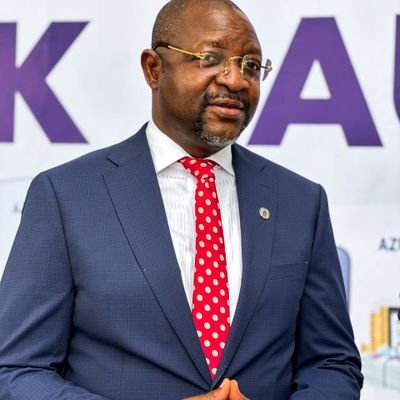The Special Adviser to the President on Communication and Orientation, Sunday Dare, has dismissed claims of a “cabal” operating within Nigeria’s presidential office.
Speaking on the television program Politics on Sunday, Dare emphasized that President Bola Tinubu is fully in charge.
The program, hosted by Femi Akande, covered the theme “Rebuilding Nigeria Through the Tinubu Reforms.”
According to Dare, the idea of a cabal in Aso Rock is a misconception.
He clarified that individuals with regular access to the president are essential advisors, not a hidden group controlling decisions.
“We’ve become too comfortable with the idea of the cabal,” Dare stated.
“The people called a cabal are simply those who manage critical sectors of the economy,” he explained.
Dare, a former Sports Minister, described these individuals as advisors who present critical information to the president.
“These advisors must keep the President informed on important trends,” he said.
He added that having access to the president does not mean they wield hidden influence.
“For instance, the Minister of Finance frequently briefs the President on economic indicators,” Dare noted.
According to him, these frequent briefings are routine but not a sign of hidden power.
He stressed that Tinubu remains “100 percent in charge” of the government’s decisions.
One example, Dare pointed out, was Tinubu’s recent decision to cancel the Central Bank of Nigeria’s (CBN) cybersecurity tax.
“When the CBN cybersecurity tax issue came up, the president canceled it,” Dare said.
“He dealt with the matter based on facts, showing his full control,” he added.
According to him, Tinubu’s reform agenda mirrors Yew’s decisive strategies that elevated Singapore from a struggling colony to a booming global hub.
Lee Kuan Yew was Singapore’s first Prime Minister, serving from 1959 to 1990.
He is widely regarded as the founding father of modern Singapore.
Under Yew’s leadership, Singapore evolved from a small, resource-poor colony into the most prosperous country in Southeast Asia.
Dare highlighted three bold decisions Yew made that, although controversial, reshaped Singapore.
“Lee Kuan Yew implemented policies that many criticized, but he never backed down,” Dare said.
“First, he chose English as a unifying language, despite backlash.”
“Second, he ensured civil servants were well-paid, which was crucial for reducing corruption.”
“Finally, he brought in the world’s top experts in fields like energy and education to build the backbone of Singapore’s growth.”
These decisions, Dare explained, were essential in shaping Singapore’s success.
For Dare, Tinubu’s approach is similar, as the president is determined to “stay the course” for Nigeria’s growth.
The Special Adviser stated that Tinubu’s reform policies, like the CNG initiative and NELFUND, already show promising results.
According to Dare, these programs reflect Tinubu’s dedication to improving Nigerians’ lives.
“The president is working with statistics and data,” Dare said.
“He knows tough decisions must be made now, or the country will face even bigger challenges in the future.”
He added that under Tinubu’s leadership, over 11,000 civil servants now have access to credit with record-low interest rates, something unprecedented in Nigeria.
Dare also dismissed rumors of a “cabal” within the presidency, saying the president is firmly in control.
“I think we’ve become too comfortable with the idea of a cabal,” Dare remarked.
He explained that those who meet with the president regularly are trusted advisors working in key sectors.
“These are experts in finance, energy, and policy who provide critical information,” he said.
“Having daily access to the president does not make them part of a cabal.”

